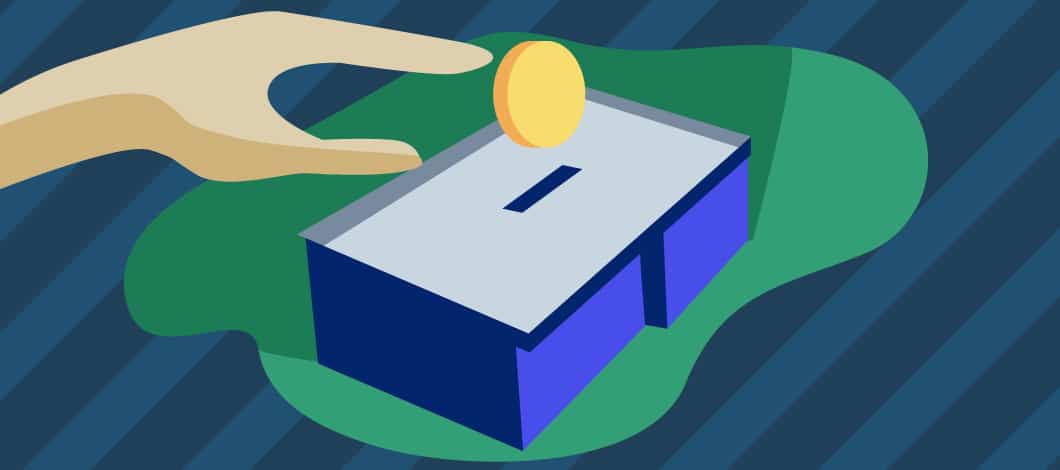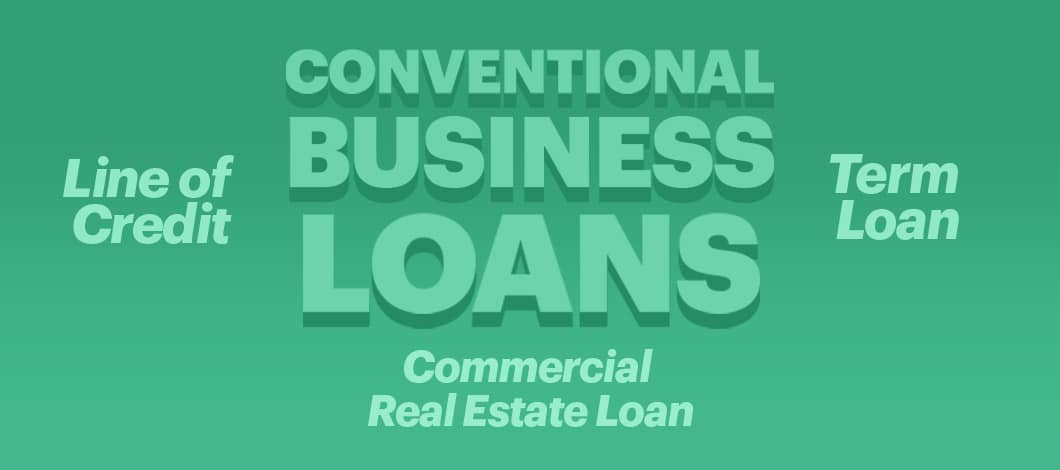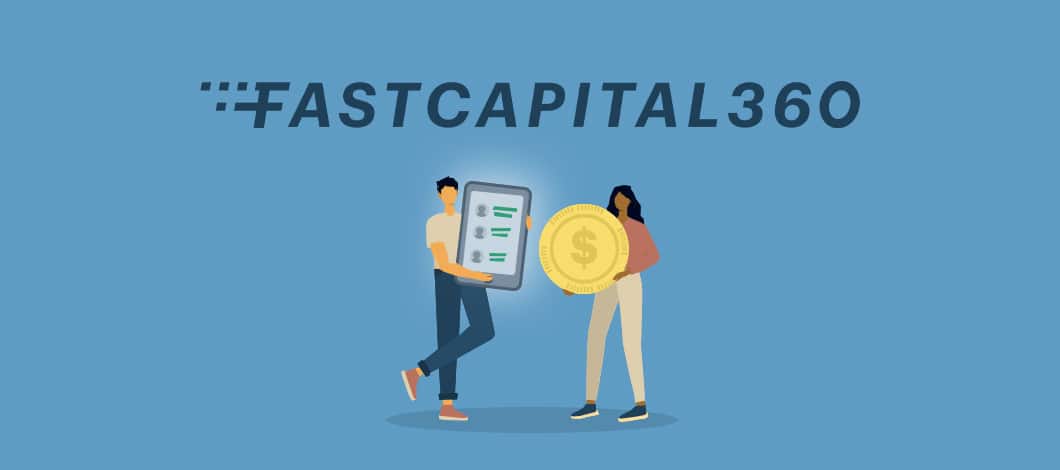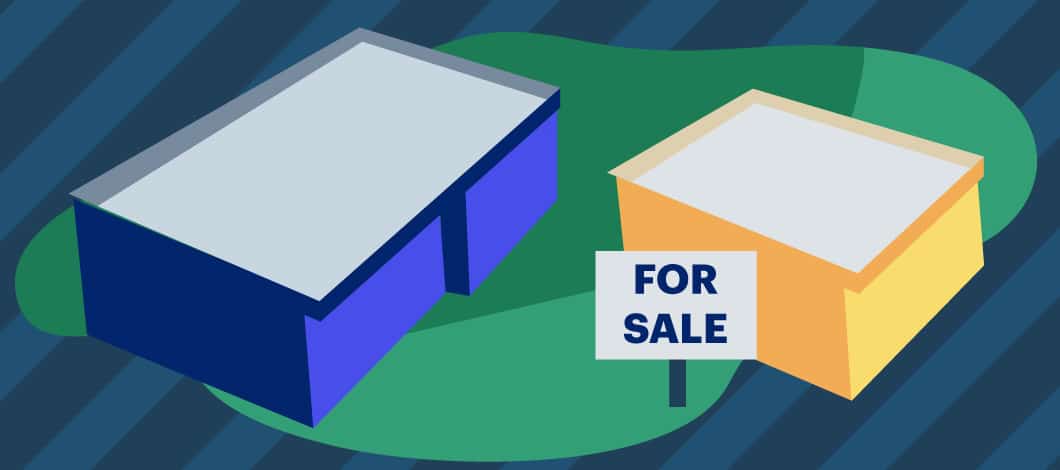How To Get A Business Loan With No Money
If it were up to borrowers, it'd be easy to get a loan with no money down. Unfortunately, that isn't the way it works.
Lenders want to lower their risk and therefore often require some type of down payment. This is how they can justify extending you credit.
But if you don't have tens of thousands in the bank to cover the initial cost of securing a loan, you still have options. We'll show you everything you need to know about obtaining different types of small business loans with no money down.

Why Making a Down Payment on a Commercial Loan Matters
If you've ever applied for a personal or commercial loan, you know that lenders generally ask you to provide a significant down payment or some other type of collateral.
They do this because they need you to have some of your own money invested before they'll extend you a loan. If you don't, their risk magnifies.
For Example
Let's say you had $20,000 to loan a relative to buy a pool. Wouldn't you feel better about them paying you back if they put up 25% themselves? That would mean they'd have $5,000 of their own hard-earned money invested, making it much more likely they would work hard to pay for the pool.
While you still might be concerned about lending them the money, they're related to you.
Now think about small business owners walking into a bank to convince lenders they're reliable enough to be loaned thousands of dollars. The banker won't be at family reunions asking for their money, right? Clearly, they have to find another way to reduce the financial risk.
How Lenders Determine Down Payments
Obtaining a business loan with no money down can prove difficult because it doesn't offer a lender as much protection on their investment. Even borrowers with the best credentials may be asked to contribute cash to secure financing.
How much of a down payment you need for a business loan will depend on a few factors:
1. Loan Type
Some types of small business and commercial loans require a certain percentage of the total loan amount to be included as money down.
For example, the Small Business Administration (SBA) requires an SBA 504 loan down payment of 10%-20%. This 10%-20% represents a cash injection from the borrower — that is, their equity in the business or project.
While the SBA will help small business owners with less cash or collateral get a loan, they still aren't willing to provide business loans with no equity.
2. Principal Amount
The principal amount has a large effect on a commercial loan down payment. When lenders see big loan requests, they see big risks. Even though larger loans are generally only given to more qualified applicants, banks still will want a big investment on your end to lessen their concerns.
3. Term Length
Lenders know that the longer a borrower takes to repay a loan, the more time they have to default. Because of this risk, obtaining long-term small business loans with no down payment is very difficult, if not impossible.
4. Creditworthiness
Last — but certainly not least — are your business and personal credit scores. It can be challenging to obtain any type of financing if you don't have a solid score that shows a history of being able to take on and pay your debts. Without it, applying for a significant business loan with no money down could be a nonstarter.
If you don't have a credit history, or certain factors have lowered your score, lenders will need money down to consider your application. To get better overall terms, try building up your business credit score to ensure that you don't need to put too much money upfront.
More Money Down Means Better Terms
Providing a down payment on a small business loan gives a lender confidence. Simply put, the more you can put down, the better.
Putting down more money upfront not only reduces the amount you have to pay back over time, it typically results in lower rates and fees from your lender. If you were to ask a bank if you can buy commercial property with no money down, they'd either politely decline your application or offer you a loan with a huge interest rate.
The Differences Between Down Payments and Collateral
Unsecured loans that don't require down payments or collateral sound like a borrower's dream. However, the terms you can typically get for these kinds of loans are consistent with those available for riskier borrowers.
Instead of a down payment or normal collateral, unsecured business loan collateral takes the form of one of the following:
- Blanket lien that puts your company in jeopardy
- Personal guarantee that makes you respond if your business defaults on its loan
If you don't have the cash to provide a down payment on a loan, providing additional collateral may be your best bet. Unlike down payments, using assets such as real estate or equipment as collateral allows lenders to satisfy their need to be repaid if you go into default.
Borrowers should beware, though: If you want your property or equipment to be used as collateral, you need to own it outright. If you already have loans securing these other assets, your lender probably won't consider them as collateral on a new loan.
Best Small Business Loans With No Down Payment
Although it can be challenging and may not get you the best interest rate, there are some ways to obtain a business loan with no money down that can help your company. Learning a little bit about each one can help you figure out the best fit for your situation and begin your search.
Here's more info from our experts to help your small business thrive.
-

Your Guide to Small Business Financing: What Options Are Available to You? Read article
-

Rounding Up the Best Small Business Loans and Providers Read article
Term Loans
Business term loans are the most common long-term funding solution for small businesses. They allow you to borrow large amounts (into the millions) and repay them over years.
One of the benefits of term loans is that you don't always have to put money down to get one. If your lender looks over your credit and the rest of your application and deems you a fit, they may only ask that you put up collateral.
If you're using the funding to buy commercial real estate or equipment, they might even use that asset as collateral.
Interest rates for these financing products are generally lower than other options and are typically reserved for qualified borrowers. If your business profile doesn't match up and if you don't have enough for a large down payment, you may have to look elsewhere.
Apply for a Term Loan
Get Started
Equipment Financing
If you need funding to buy or replace any equipment for your business, you may not need to put money down. Equipment financing can cover up to 100% of the cost, meaning the value of the piece of equipment itself will be enough to use as collateral.
Since lenders can recoup their money in case of default by seizing the asset, this type of financing is less risky for them. If the equipment itself will rapidly depreciate, however, they may not fund the full 100%, leaving you to come up with 20% or more for a down payment.
Because lenders know they can always take the equipment to satisfy their loan, equipment financing is also one of the easier types of financing for which new businesses can qualify. If you're a new business or haven't yet established good business credit and need equipment, this type of financing may be your first bet to get a first-time business loan with no money down.
Apply for Equipment Financing
Get Started
Invoice Financing
Unlike other types of loans that use fixed assets for collateral, invoice financing — a type of accounts receivable financing — doesn't require a down payment. This is because with invoice financing you essentially sell your unpaid invoices to the lender and the invoices are your collateral.
Invoice financing is a great option for small businesses that have long payment cycles and cash flow issues while they wait for their customers to pay them.
Apply for Invoice Financing
Get Started
Business Line of Credit
Although business lines of credit aren't considered conventional business loans, they can be a great alternative if you don't have collateral or money for a down payment.
Most lines of credit are structured as a type of revolving financing and act much like business credit cards. The way they work is this:
- Once you're approved for a business line of credit, you're given a pool of money that you can borrow against. When you need access to cash, you simply transfer it into your checking.
- After you draw money against your line of credit, you'll have to start making payments to your lender to cover the interest charged on the money you've used. Anything extra that you pay each month goes toward your loan balance.
- As you pay back your line of credit over time, your pool of available funds builds back up, and you can draw on them again as needed. This process doesn't require you to apply for a separate loan each time you access a line of credit, and it doesn't require you to make monthly payments above the interest you owe.
Apply for a Business Line of Credit
Get Started
SBA Loans
There are various SBA loan programs, some with down payment requirements and some without.
Generally, SBA microloans, export working capital loans and disaster loans do not require down payments.
SBA Microloans
For startups and other small businesses that either don't fit the requirements of typical SBA loans or can't afford the down payment, there are SBA microloans . These loans are for amounts up to $50,000, often with no money down.
What makes microloans tricky is that the SBA doesn't guarantee them like they do with conventional SBA loans. They also commonly don't require a down payment, but you'll be expected to offer up some type of collateral to secure funding.
How to Buy a Business With No Money Down
This is a question that's frequently asked by owners looking to buy a business without the cash flow necessary to make a down payment. In most cases, buying a business with no money to put down is unrealistic. Banks and other lenders that offer amounts high enough to purchase businesses find these transactions risky. Because of this, they'll usually ask for at least 10-20% down.
There are some ways to find no-money-down business acquisition loans, however—they just require a few circumstances to align.
Leveraged Buyouts
Using the assets of the business you're looking to buy—as well as your own—for collateral is called a leveraged buyout. The only catch is that the assets must be worth more than the total loan amount, which can be difficult to achieve within certain industries.

Seller Financing
If you're buying a business from a friend or family member, buying a business that's in trouble, or buying from someone who has had a lot of trouble trying to sell their business, you may find that seller financing is a possibility. In this scenario, the seller of the business you want to acquire may be willing to finance 100% of the purchase price. This is very uncommon, however, and a few stars will have to align to convince the seller to let you buy a business with no money down.
Alternatively, if the seller is truly desperate to sell their business, they may be willing to work with you and your lender. If you're lucky, they may be willing to finance whatever percent of the business your lender isn't willing to finance for you.
If this is the case, you could end up making multiple large payments every month, but you will have gotten to buy the business with no money upfront.
Small business tip: While it's possible to use your personal 401(k) funds as a business acquisition loan down payment, it's not the ideal choice. Consider using it only if you're confident enough in your investment to take the risk.
Down Payments for Commercial Real Estate
This is another question many small business owners ask because everything we've ever heard about mortgages is that you need a hefty down payment. In some cases, however, no-money-down business loans can help you cover the upfront costs.
Although it's unlikely that they can cover the whole asking price, you can use the following to obtain enough funding to cover a down payment:
- Business lines of credit
- Microloans
- Short-term loans
- Merchant cash advances (MCA)
Depending on your lender, you might not be able to be approved for both types of funding in the span that you need them. Liens, collateral and other issues might make it impossible to finance a down payment for any future loans.
How to Apply for Business Loans With No Money Down
The first step in applying is finding out what you need. Go over the different types of loans we've covered and assess what fits what you require funding for.
For example, if you need to purchase new machinery, look into equipment financing. If you need money for working capital in between payments, consider invoice financing. If you're trying to start a business or need money for operating capital, SBA microloans and business lines of credit are great options.
Think about the collateral you can offer if applying for a loan that doesn't have it built-in, like equipment and real estate financing. If you need a down payment to purchase commercial property, reach out to potential lenders to see if it's possible to borrow the necessary funds in a separate transaction.
Whatever you do, don't worry about not having cash on hand when you need funding. It's more difficult, but getting a business loan with no assets is still possible. You just might have to do a little more digging.
How To Get A Business Loan With No Money
Source: https://www.fastcapital360.com/blog/no-money-down-small-business-loans/#:~:text=If%20you're%20trying%20to,equipment%20and%20real%20estate%20financing.
Posted by: guaysuraceent1978.blogspot.com

0 Response to "How To Get A Business Loan With No Money"
Post a Comment